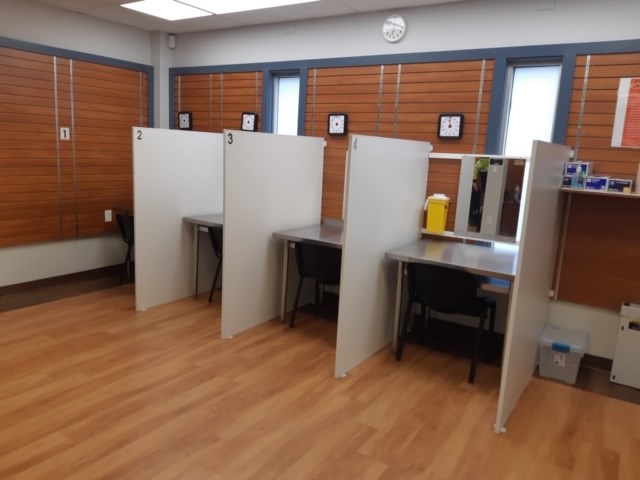Frontline workers in Niagara say the pandemic continues to create a dangerous gauntlet for the most vulnerable residents in the region who are struggling with homelessness and drug addiction.
While emergency shelters in Niagara are still far from at capacity, those seeking food and a bed for the night appear to be in rougher condition after months of restricted access to services, said Susan Vendetti, executive director of Start Me Up Niagara.
Last Sunday night the organization served takeout meals to 130 individuals through a distanced set-up at Columbus Hall in St Catharines.
Vendetti said the distress was palpable among many of those who came out for a meal.
"You can see on the street population that they are in far worse physical condition than before."
During her Sunday night shift, Vendetti says she could also feel immense gratitude from those coming for a meal.
"I just couldn't believe how thankful people were. People that have so little, and they are showing such gratitude for a supper takeout. The issue with homelessness in Niagara has become very visible in the last few months," she said.
"You'd walk down the street and everyone was cocooning at home, except the people who don't have somewhere to live. At this level, it forces people into taking action, and the community response has been amazing."
The organization has 45 beds available through its Out Of The Cold program, but can not serve food in that facility, leaving them with trying to figure out where their clientele can sit down to eat once temperatures make eating outside impossible.
Positive Living Niagara, an organization that runs several harm reduction programs are also raising the alarm that the opioid crisis continues to claim lives in the shadow of the pandemic, after a summer of high numbers of overdoses, peaking in September where EMS responded to 75 instances where an individual was suspected to have overdosed.
Positive Living's Executive director Glen Walker told Thorold News that they continue to see around 30 overdoses at their supervised injection site in St Catharines, despite a drop in visitors.
"We are in an overdose epidemic within a pandemic," said Walker, recounting how his organization is stuck in limbo trying to push the message to not use alone, while all other health advice is repeating the mantra to stay apart.
"A lot of people have died from overdoses here in Niagara. It is a big issue flying under the radar, and we keep telling people to start talking to their relatives or friends who are using that they have a safety plan, so they do not go off using by themselves. No matter how experienced you are, you can still go into overdose."
Walker said the pandemic has caused cutbacks in the supply chain due to the border closures, leading dealers to cut their drugs with a range of substances that increase the deadliness of the drug.
"There is a lot more risk, and a lot of people are scared. You can't stop using but you are afraid to use. It is challenging," said Walker, adding that many users have now taken to smoking their substances as opposed to injecting.
Much like Susan Vendetti, Walker said the people seeking the organization's help appear to have suffered from less accessible services.
"We are seeing people who should be getting urgent care. We do more and more wound care on the site when people normally would just have gone to the hospital or walk-in, but there is a reluctance to doing that. Physicians are limited or closed down, people who have a GP haven't been attending. If you are living rough and develop a condition, it is just going to get worse."
While Niagara's COVID-19 cases have been rising, officials have warned that the region could be heading into the red zone of the provincial framework, which could put users in more peril, warned Walker.
"What will happen is that health care providers will restrict services again. We will continue to see people, but we will have nowhere to refer them to if things are not open," he said.
"The current state, as it is, does not leave us optimistic, but if the pandemic gets worse, more people will be put at risk, and we'll have a death toll that will be comparable to, or greater than those lost to the pandemic."



